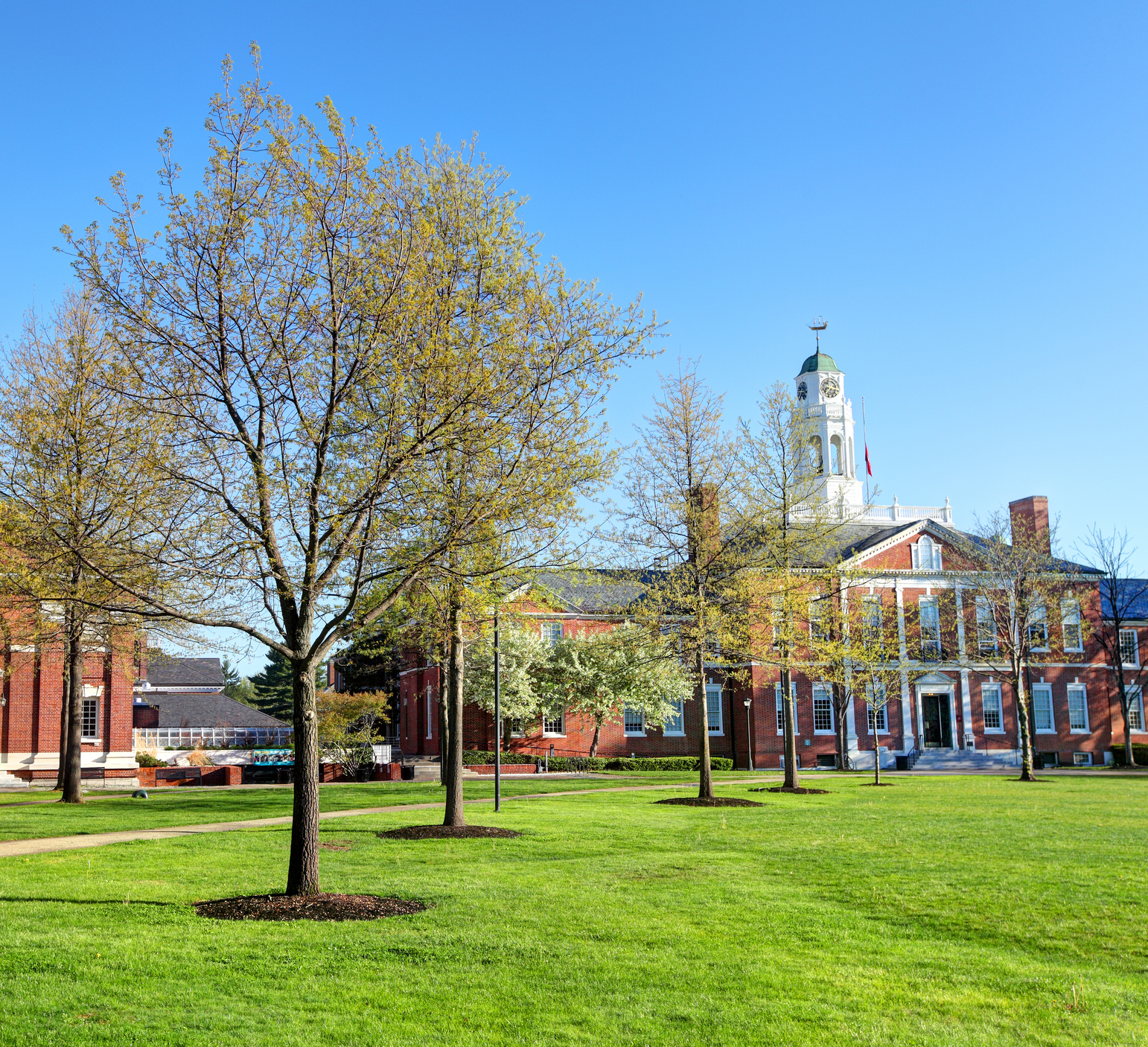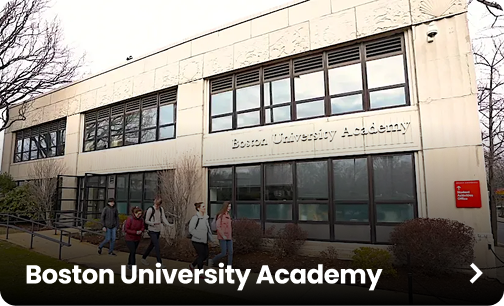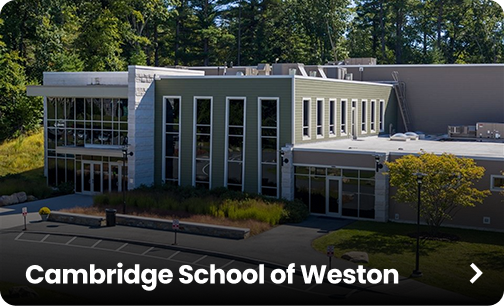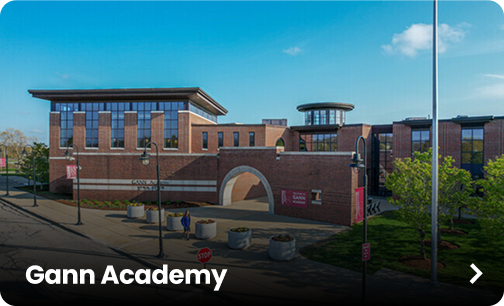Upper School and Beyond
Beyond Overview
Grades 6-9
Our Upper School Program builds on the Lower School approach, facilitating the transition to early adulthood through dialogue, projects, and leadership experiences.
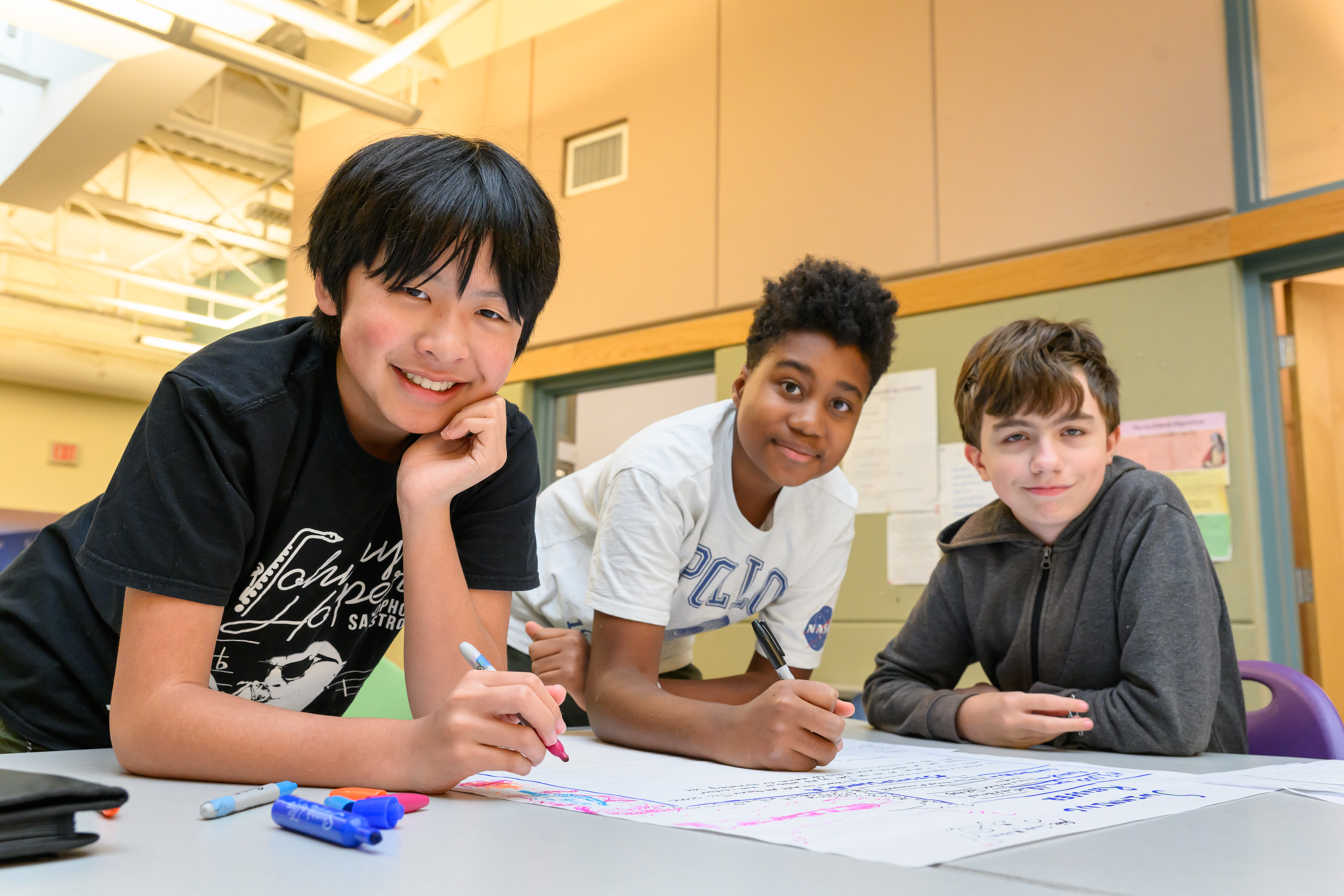
Welcome 8:30-8:45
Morning meeting 8:45-9:00
Elective A
9:00-10:45
Math
10:45-12:00
Lunch
12:00-1:00
Core
1:00-2:45
Stewardship 2:45-3:00
Dismissal 3:00
Welcome 8:30-8:45
Morning meeting 8:45-9:00
IMP
9:00-10:45
Math
10:45-12:00
Lunch
12:00-1:00
Elective B
1:00-2:45
Stewardship 2:45-3:00
Dismissal 3:00
Welcome 8:30-8:45
Morning meeting 8:45-9:00
Core
9:00-10:45
Creativity
10:45-12:00
Lunch
12:00-1:00
Creativity
1:00-2:45
Stewardship 2:45-3:00
Dismissal 3:00
Welcome 8:30-8:45
Morning meeting 8:45-9:00
Elective A
9:00-10:45
Math
10:45-12:00
Lunch
12:00-1:00
Core
1:00-2:45
Stewardship 2:45-3:00
Dismissal 3:00
Welcome 8:30-8:45
Morning meeting 8:45-9:00
Core/IMP 9:00-9:45
IMP
9:45-10:45
Math
10:45-12:00
Lunch
12:00-1:00
Elective B
1:00-2:45
Stewardship 2:45-3:00
Dismissal 3:00
Welcome 8:30-8:45
Morning meeting 8:45-9:00
Science Foundations
9:00-10:45
Break
10:45-11:00
Math
11:00-12:00
Lunch
12:00-1:00
Core
1:00-2:45
Stewardship 2:45-3:00
Dismissal 3:00
Welcome 8:30-8:45
Morning meeting 8:45-9:00
Core/H+W+L
9:00-9:45
IMP
9:45-10:45
Break
10:45-11:00
Math
11:00-12:00
Lunch
12:00-1:00
Elective B
1:00-2:45
Stewardship 2:45-3:00
Dismissal 3:00
Welcome 8:30-8:45
Morning meeting 8:45-9:00
Core
9:00-10:45
Creativity
10:45-12:00
Lunch
12:00-1:00
Creativity
1:00-2:45
Stewardship 2:45-3:00
Dismissal 3:00
Welcome 8:30-8:45
Morning meeting 8:45-9:00
Science Foundations
9:00-10:45
Break
10:45-11:00
Math
11:00-12:00
Lunch
12:00-1:00
Core
1:00-2:45
Stewardship 2:45-3:00
Dismissal 3:00
Welcome 8:30-8:45
Morning meeting 8:45-9:00
Core/H+W+L
9:00-9:45
IMP
9:45-10:45
Break
10:45-11:00
Math
11:00-12:00
Lunch
12:00-1:00
Elective B
1:00-2:45
Stewardship 2:45-3:00
Dismissal 3:00
- Dissecting a cow heart for insights into human biology.
- Increased emphasis on accountability and follow-through for assignments as fits the middle-years’ and high school age readiness.
- Increased focus on development of individual voice – in writing via one-on-one coaching, in arts and projects, and more opportunities for community-wide leadership.
- Access to hands-on science lab experiences in biology, chemistry, and biochemistry, with an approach inspired by how science is done in actual labs (a discovery-oriented approach with a role for creativity and problem-solving, not textbook based), through our elective program.
Each year, Acera Upper School students have the opportunity to dive deeply into their interests and stretch into new areas of learning by selecting six elective classes from our catalog of over 40 offerings. Our electives span the Humanities, Sciences, Engineering, Technology, and the Arts, ensuring that every student experiences a balanced and expansive education. Offerings change each trimester and evolve every year, allowing students to continually discover new areas of passion and challenge. From crafting a seaworthy vessel in Boatbuilding to exploring justice in Civil Rights, questioning existence in Metaphysics, or mapping global power dynamics in Geopolitics, our courses spark curiosity and inspire critical thinking. Hands-on and rigorous, these classes cultivate both depth and breadth of understanding—whether students are using mathematical calculations to chart the movement of constellations in Astronomy, analyzing classic literature through a modern lens in Gender & The Odyssey, or conducting lab-based investigations of plant structures and ecosystems in Phytology. We invite families to explore the wide range of possibilities in our Electives Catalog to see how these rich learning experiences come to life.
A multi-year, ongoing Curriculum Mapping Project includes all of our full time teachers and is led by our Instructional Leadership Team. Curriculum Mapping helps us assure that we reference benchmarks and standards without being limited by them. Standards are a floor we stand on, and the horizon of what is possible for every student is where we focus. Curriculum Mapping discussions and documentation helps us codify replicable, high-caliber year-long themes. Year long themes include depth across all disciplines, high quality primary sources, projects, inclusion of the world beyond Acera, and build students core capacities (perspective taking, ethical decision making, critical thinking, etc.) and essential skills (reading, writing, organizational, computational thinking, digital literacy, etc.). Every year, teachers revisit first principles of effective pedagogy and our mission, and collaborate to challenge one another for constant improvement. As the Curriculum Mapping project grows, we continue to upgrade successful components and support teacher development and program quality all along the way with our talented teacher mentor team. This occurs while still giving substantial autonomy for teacher judgement and invention.
For 2-4 hours each week, Upper School students work with their Core teacher and the broader IMP Mentor Team to turn an interest into an IMP Project. Once paired with a mentor, students move through the IMP Project Process.
Typically, each student does a literature review, pitches their project concept to an audience for approval, and then works on their project (either on their own, with a partner, or with a small team they recruit) during IMP Project times. IMP Project topics are initiated by students, and are envisioned around a topic, question, need or interest they’ve chosen.
Mentors with deep expertise in engineering, art, philosophy, electronic arts, maker space, lab science, computer science, game design, mathematics, woodshop, technology, music, journalism, creative writing, and marketing.
For some students, smaller and shorter timeframes will make sense for their first IMP Project as they learn this approach. As students’ interests, maturity, and organizational skills deepen, longer-term projects become more appropriate. IMP Project Mentors support authentic student engagement through their interests, their acquisition of project management and communication skills, work to develop their advocacy and communication skills to engage others in their project, and prepare for the twice-yearly “IMPosium” Open House Events to share their projects with parents and others.
All students have science elective options including physics, biology, chemistry, astronomy, maker space, engineering, elective options over their years in the Upper School. These labs link conceptual learning to real innovations and world needs.Topics have included: biochemistry, molecular biology, biotech, biology, chemistry and more, which enables students to learn science through doing and has a role for students to understand concepts by uncovering them through their experiences; iterative redesign of protocol and uncovering scientific principles enable deeper understanding as students see things come alive and make sense so they can construct their own understanding. The Life Sciences Lab is modeled as a space and place built around the way biotech scientists work, rather than a recipe book approach following a textbook. They make connections back to the real world and current day innovations. One sample partnership and pilot test program from a few years ago was the Amino BioLab. Acera was chosen as the site to pilot test this in the United States, enabling our Upper School Science Lab to include Microbiology, Synthetic Biology and Gene Editing. We have had a myriad of life sciences partners over the years, whose leading research helps infuse creation of new hands-on labs.
Program Purpose
- Fostering identity, voice, and confidence.
- Enhancing perspective-taking and systems thinking.
- Cultivating engaged citizens.
- Promoting accountability and organization.
- Developing creativity and collaboration.
- Encouraging emotional intelligence and resilience.
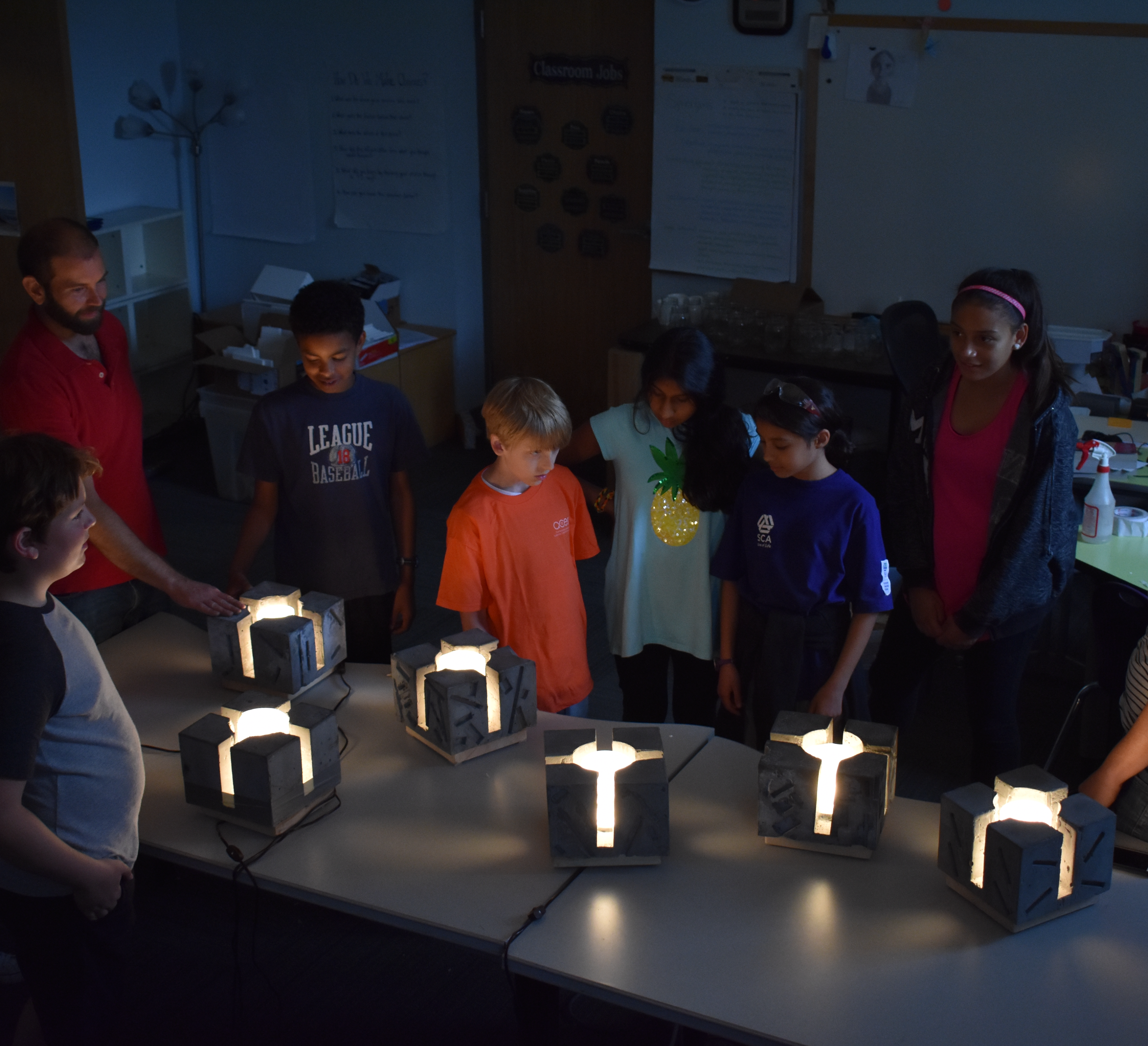
We prioritize development of core capacities (systems thinking, perspective taking, critical thinking and problem solving, ethical decision-making, creativity, leadership) along with academic skills (writing, math, organization, technology). This prepares students for high school and life, promoting self-awareness and self-advocacy. Voluminous amounts of knowledge — with breadth and depth — is acquired along the way, and retained well, because learning occurs within a context which matters to students; it is in an elective they chose, or in a passion project they defined, or understood deeply because they applied their computational thinking to something real. This is how our philosophies of choice and project based learning achieve great results. Robust vocabularies, great oral and dialogue skills, strong analysis and writing, and high caliber mathematical minds get built at Acera.
Components:

Project-based learning around essential questions, culminating in events like plays or advocacy outreach.

Ability-based placements in various math courses, including pre-algebra through precalculus.

Focus on developing a strong sense of self, communication skills, and emotional intelligence.
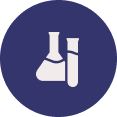
Hands-on lab experiences in biology, chemistry, and more, emphasizing real-world scientific practices.

Students engage in Inquiry, Maker & Passion projects, showcased at the “IMPPosium,” working with specialists in their fields.

Students select three electives each semester from diverse offerings, including deep high-school level content (e.g. Geopolitics, Metaphysics, etc. ), across arts, architecture, social sciences, and history.
Acera’s 9th Grade Bonus Year Program is an excellent option for students who wish to stay at Acera and extend their high school level coursework, ability-based math classes, close teacher-to-student relationships, and a sense of belonging in our community.
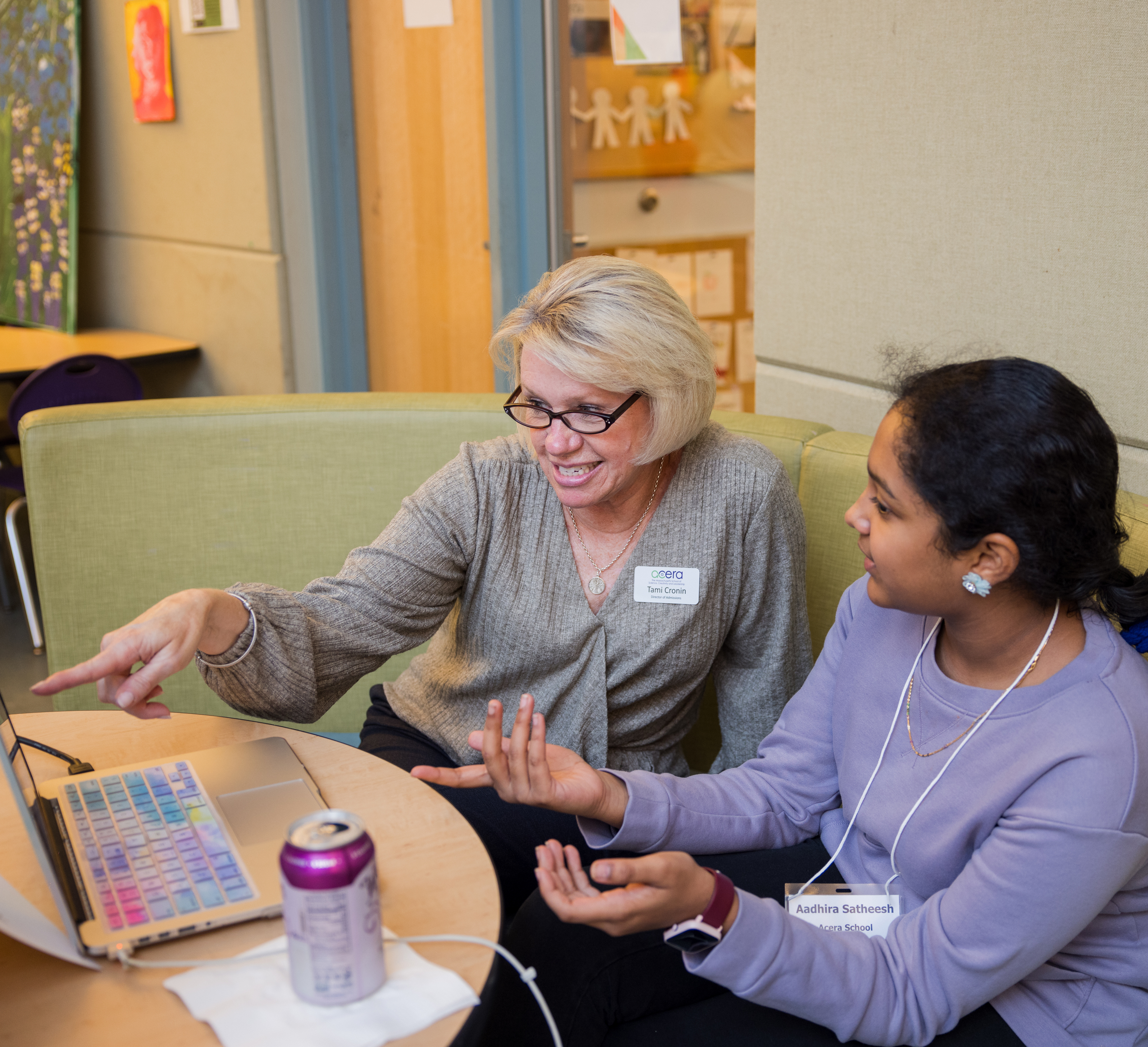
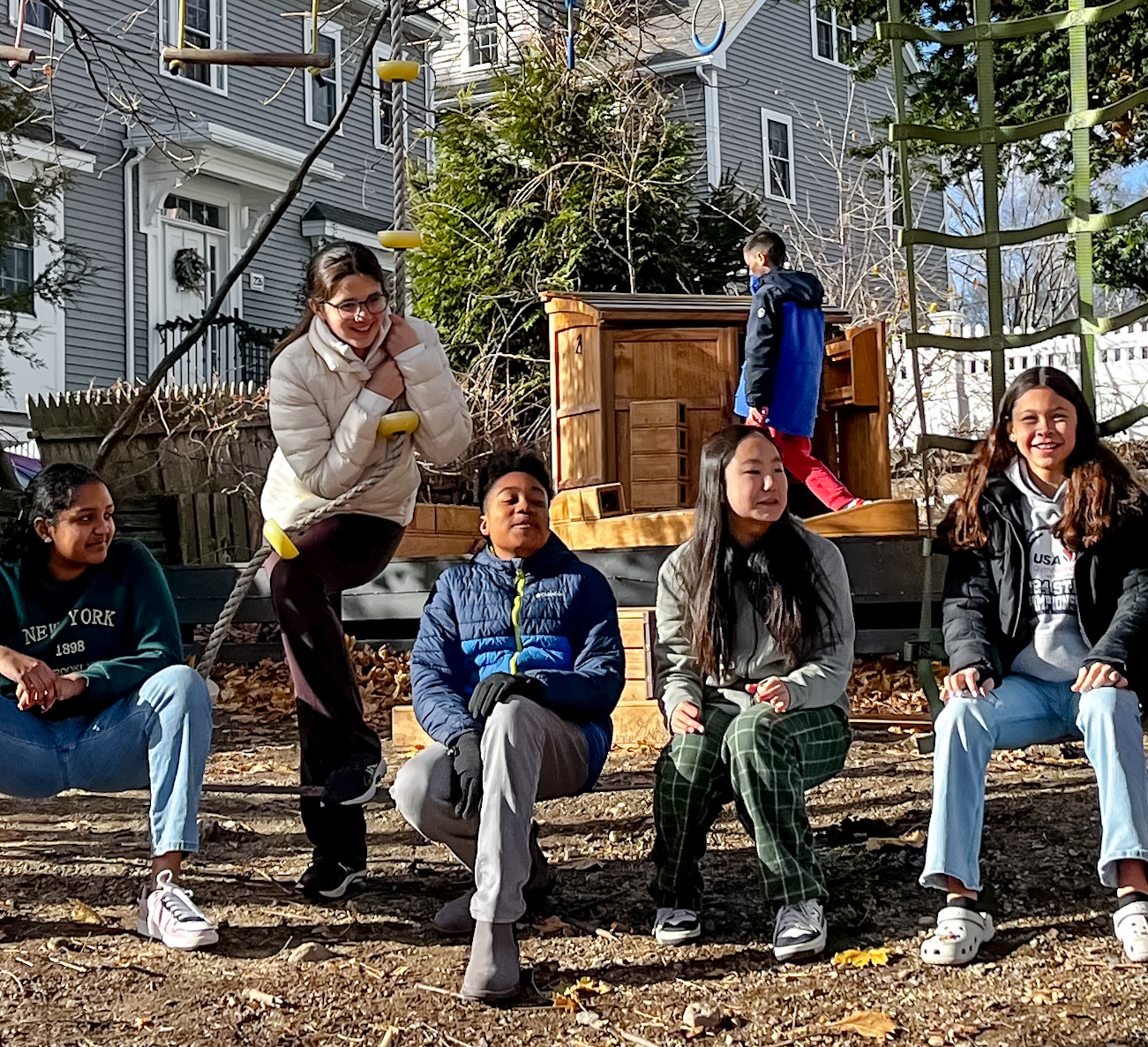
When transitioning out of Acera into high school, Acera students consistently succeed; students report that their critical thinking and problem solving, writing and organizational skills, and ability to self-advocate set them up for success in high school. This is true across myriad programs, public and private.
In the last six years, 98% of students who apply to independent high schools have been accepted at a high school they chose.
Most families prefer a day program proximate to their homes, so they look at schools within, north of, or west of Boston. Approximately 50% of our students choose to go to their public high school.
Acera Alumni have been admitted to many day and boarding school programs, including Bard’s Academy at Simon’s Rock, Boston University Academy, Belmont Hill, British International School of Boston, Buckingham Browne & Nichols School, Buxton Academy, Chapel Hill-Chauncy Hall, Cambridge School of Weston, Commonwealth Concord Academy, Dana Hall, Dublin School (NH), German International School, Governor’s Academy, Groton School, Meridian Academy, Minuteman Vocational Technical, Milton Academy, Newman Academy, Northfield Mount Herman, Phillips Andover Academy, Phillips Exeter Academy (NH), Pingree School, Putney School (VT), St. John’s Prep, Waring Academy, and Winsor School.
